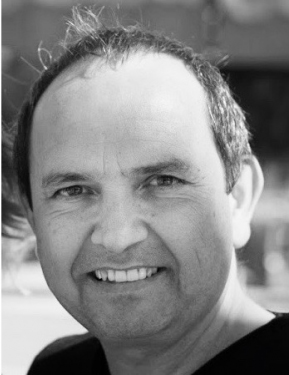Teddy Cruz
Professor
etcruz@ucsd.edu
Office/Studio
Visual Arts Facility 620
Biography
Teddy Cruz is a Professor of Public Culture and Spatial Practice in the Department of Visual Arts at the University of California, San Diego. He is known internationally for his urban research of the Tijuana-San Diego bio-region, advancing border neighborhoods as critical sites from which to rethink political economy, public space and social practice.
He co-directs the UC San Diego Center on Global Justice, with Political Science Professor Fonna Forman, forwarding geo-political borders as laboratories for engaging the central challenges of urbanization today: deepening social and economic inequality, dramatic migratory shifts, urban informality, climate change, the thickening of border walls and the decline of public thinking. Together they lead Estudio Teddy Cruz + Fonna Forman, a political and civic research-based practice to advance new intersections between architecture, art, urban borders, civic engagement, public culture and political theory. They also co-direct the UC San Diego Community Stations, a cross-border network of public spaces located in migrant neighborhoods on both sides of the border wall, where education and research are conducted collaboratively with grassroots organizations in the margins, to increase community capacities for political action, and elevate the role of art and architecture to confront exclusion and homogenization in the city, proposing new social programs and spaces for an inclusive urbanization.
Teddy has been recipient of the Rome Prize in Architecture, the Ford Foundation Visionaries Award, the Architecture Award from the US Academy of Arts and Letters, the Global Award for Sustainable Architecture, by the French National Museum of Architecture in partnership with the UNESCO, and the Vilcek Prize in Architecture. His work has been published and profiled widely in art and architectural journals and newspapers, including DOMUS, Art Forum, Metropolis, The New York Times, The Guardian, Progressive Architecture, Architecture Record, Praxis Magazine, Yale’s Perspecta, VERB and Harvard Design Magazine, and his writings have been included in important books edited by such prominent authors as Michael Sorkin, Bruce Mau, Rebecca Solnit, Andrew Ross and Ananya Roy.
Teddy Cruz and Fonna Forman’s work has been exhibited internationally, including the Museum of Modern Art, New York; the Cooper Hewitt National Design Museum, New York; the Das Haus der Kulturen der Welt, Berlin, M+ Hong Kong, and represented the United States in the 2008 and 2018 Venice Architectural Biennales. They have a new two-volume monograph published by the MIT Press and Hatje Cantz: Spatializing Justice: Building Blocks and Socializing Architecture: Top-Down / Bottom-Up, and an upcoming book by VERSO, Unwalling Citizenship: The Political Equator.
